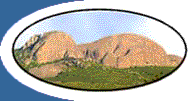THE way people communicate globally has been changed for-ever by the internet and, specifically, social networking.
Social networks allows information to spread from one person to hundreds of millions right across the world in just a matter of moments.
While most of this information is mundane, some have the power to change the world.
This has never been more apparent than when Wikileaks published over 250 000 leaked diplomatic cables sent by US embassies around the world at the end of November. The messages reveal shocking details of the US’s motives, plans and negotiations with other countries.
Some of the messages are simply embarrassing, while others reveal startling truths about the war on terror, opinions on Middle Eastern countries and matters surrounding the volatile situation in Korea.
Data can be shared, copied, downloaded to a hard drive, edited or deleted. Millions of people can access the records and create their own versions, spreading the information even further.
To put the scale of this into perspective, consider Facebook, the world’s largest social network. Facebook currently has 550 million users, over half of whom log on every single day.
The average user is connected with 130 friends, which means that they are only two connections away from over two million people, and less than four connections away from everyone on the network.
Information spreads over social networks virally, which means that one person passes the message on to a number of others, who each pass the message further on to some of their connections.
This leads to an exponential growth in the number of people reading and sharing the message.
The most popular messages involve either humour or shocking content, so it’s no wonder that the Wikileaks information could spread so far.
There is no doubt that the Wikileaks revelation will change the way the world thinks about information, governance and democracy.
Some people feel that sharing the information is irresponsible and unnecessary, while others applaud the act for encouraging greater transparency and honesty in international dealings.
As details continue to be revealed, social networks are playing a key role in spreading the word and galvanising both camps. Regardless of the final outcome, Wikileaks has made it clear that information, spread globally, is the most powerful and unpredictable force today.
To learn more about the power of the internet and its tools, consider the University of Cape Town Internet Super-User course, which starts on 11 April. For more information, contact Karin on 021-685-4775 or Karin@getsmarter.co.za, or visit www.getsmarter.co.za.


